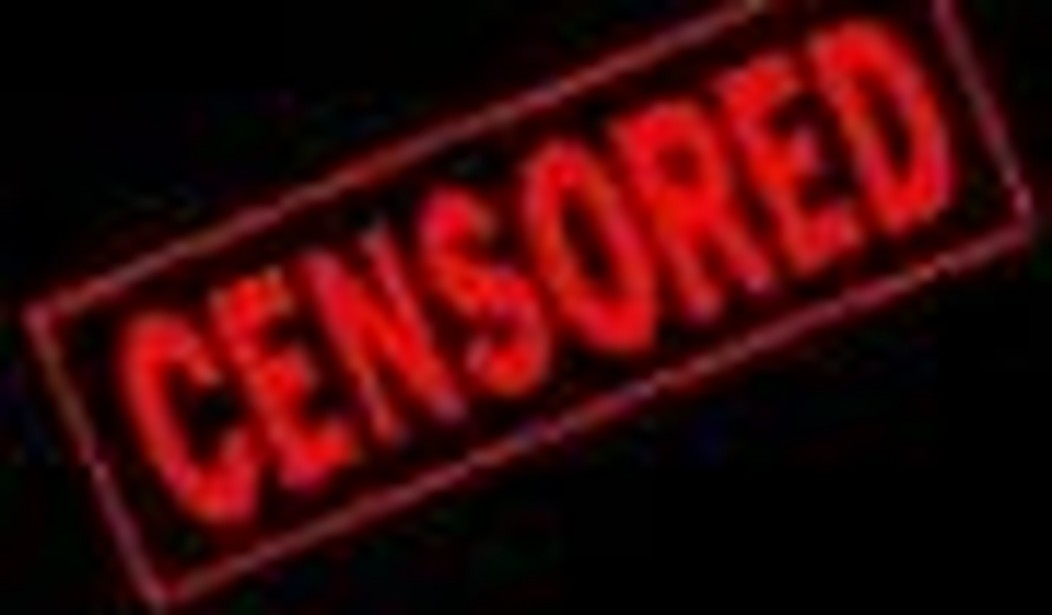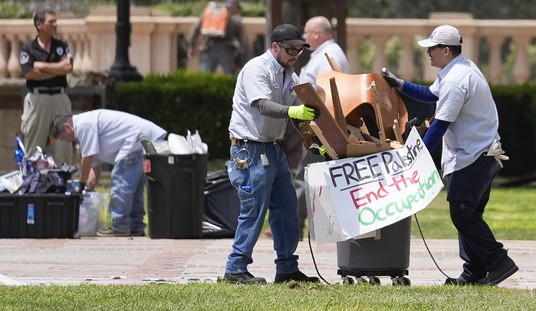An organization in the national spotlight recently for producing a documentary identifying several dozen potential terrorist training compounds in the U.S. has offended the sensibilities of Maine bureaucrats, who have fined the organization $4,000, alleging among other things that the group sent out mailings containing an “inflammatory anti-Muslim message.”
The group in question, the Christian Action Network (CAN), received notice of the fines and the fundraising ban in a May 6 letter from Elaine Thibodeau of the State of Maine’s Department of Professional and Financial Regulation. Enclosed in the letter was a prepared consent agreement for CAN to sign agreeing to all of the state’s allegations, waiving all rights to appeal, and agreeing to pay the $4,000 fine. As part of the consent agreement, CAN is required to agree to all of the state’s allegations, including their assertion that their mailing amounted to hate speech.
“These bogus charges and fines the State of Maine has imposed are nothing but an attempt to stifle our free speech and silence our organization from speaking out about the steady creep of radical Islam in America,” CAN president Martin Mawyer told Pajamas Media. “We fully intend to appeal the state’s penalties because if they successfully silence us here, we will quickly find that we won’t be able to speak out anywhere.”
CAN was in the news earlier this year following the release of their documentary, Homegrown Jihad, which details dozens of compounds across the U.S. operated by Pakistani Sheikh Mubarak Gilani, who has previously been identified in State Department reports as a terrorist leader, and his group, Jamaat al-Fuqra. The documentary looks into the past terrorist acts of the group in the U.S., including the assassination of two moderate Muslim leaders, the firebombing of non-Muslim religious facilities, and an investigation by Colorado authorities that led to convictions and lengthy prison sentences. These activities have been covered in several FBI domestic terrorism reports and a more recent assessment by the Center for Policing Terrorism. Other prominent convicted terrorists, including “shoe-bomber” Richard Reid, D.C. Beltway sniper John Allen Muhammad, and NYC landmarks bomb plotter Clement Rodney Hampton-El, have been identified as former members.
But what has Maine bureaucrats roiling is a fundraising mailing sent by CAN (a copy of which was provided to Pajamas Media) regarding a public school curriculum used in California requiring students to pray to Allah, dress up as Muslims, adopt Muslim names, and learn the five pillars of Islam. Since Christians and Jews are not given similar accommodations, CAN encouraged their supporters to send a petition to Maine Gov. John Baldacci asking him to prevent such instruction in Maine public schools.
Among the stated allegations in Thibodeau’s letter and the consent agreement is that this amounted to hate speech, claiming:
5. The correspondence contained an inflammatory anti-Muslim message.
In two separate rounds of correspondence with Thibodeau, I inquired what basis the state used to determine that the mailing was “inflammatory,” but she refused to address that question on both occasions.
In addition to running afoul of ideological sensibilities of Maine state employees, Thibodeau makes two regulatory claims that prompted the $4,000 in fines. The first claim made by the state is that CAN was not properly registered when the mailings were sent. The second is that CAN used Maine Gov. John Baldacci’s name without his permission.
CAN responds that they made all efforts to comply with state law and promptly provided additional information requested by Thibodeau’s office. And they provided Pajamas Media with documentation that seems to flatly contradict the State of Maine’s allegations. While Thibodeau’s letter claims that CAN’s charitable solicitation license expired in November 2007, CAN produced copies of canceled checks cashed by the Maine state treasurer that accompanied their 2008 renewal and registration.
Nothing in what the state has sent to CAN indicates that 2008 registration was in any way defective (or even mentions it), which creates problems for the state’s position, for if the previous year’s registration was in order, and CAN claims to have received nothing to indicate otherwise, their fundraising mailing would have fallen within the 90-day renewal period when the mailing was sent. The state’s claim that their 2009 registration was out of order and that they were fundraising without a license would therefore be moot as the mailing was sent prior to the renewal period’s expiration.
In support of their position that CAN was not properly registered this past April, Thibodeau’s office claims that several pages of CAN’s annual audit were not properly transmitted with their application and notified them of the error by email on April 6. Her letter acknowledges that they received the missing pages on April 21, postmarked on April 13. This constitutes the grounds for the state’s $1,000 fine. Thibodeau confirmed that the state doesn’t send out any official notice that an organization’s application has been approved.
“They have created a black box registration process where if they don’t like what you’re saying, they will go back through your application and determine that your application wasn’t correct, and suddenly you’re violating the law,” Mawyer said. “That’s what we believe has happened in this case.”
Perhaps more troubling for free speech advocates is the state’s claim that CAN needed the governor’s permission in order to use his name on the petition that the group urged supporters to send to him:
8. Governor John Baldacci did not give written consent, or any other consent, to the Christian Action Network to use his name for the purpose of soliciting contributions.
This was the stated basis for assessing the heavier $3,000 fine. Thibodeau’s letter and the consent agreement also allege that the use of Baldacci’s name was intended to suggest his endorsement of CAN. But Mawyer notes that the U.S. Postal Service examines all of their fundraising solicitations, including looking for any implied endorsements, before they are mailed.
“It would be a violation of federal law for us to make any false representation concerning any endorsements, which is one reason why we submit all of our fundraising letters to the Post Office for their approval prior to anything being sent out under our non-profit mailing permit, as was the case with this fundraising package,” Mawyer said. “We have had the Post Office reject packages in the past, and we have rewritten them to get their go-ahead. Now Maine is telling us in essence that even if we get federal approval beforehand, the state retains the right to reject their interpretation and impose their own standard if they disagree with the content of your mailing.”
It is particularly telling that while the state claims that CAN implied the governor’s endorsement, they did not assess any fines based on this allegation, perhaps with the problem of the Postal Service’s prior approval of the CAN mailing in view. But the free speech chilling effect from Maine could be enormous as their interpretation of state law could virtually outlaw any issue mentioning government officials without obtaining their prior written consent. As Mawyer observes, “Imagine not being able to criticize a public official without their express written permission or without any reference to them whatsoever.”
One important outstanding issue following the rounds of correspondence between Pajamas Media and Thibodeau concerns a public complaint received by her office about the content of CAN’s mailing cited in her May 6 letter. Her letter gives specific dates on all other matters except this one. Mawyer’s concern is that the complaint may have not only preceded the state’s notification of the missing pages to the application, but also their decision to consider CAN’s solicitation license invalid. I specifically asked twice on what date the complaint was received and Thibodeau refused to address the question both times.
“There’s little doubt that our documentary on Islamic terrorist camps operating inside the U.S. and our statements of concern about the spread of radical Islam is at the heart of the state’s actions. And we can’t help but conclude based on the available evidence that if we were ACORN, or any other group advocating some left-wing cause, they would be using a less-than-rigorous scrutiny in their interpretation of the law,” Mawyer said. “Would they ever dare consider applying these standards to CAIR [the Council on American-Islamic Relations]?”
CAN is appealing the fines issued by the State of Maine and is also considering a lawsuit to prevent bureaucrats from using rulings after the fact to go after charitable organizations running afoul of political correctness. If Maine were to prevail in this case, they fear that it would not only be used by groups like CAIR to attempt to discredit CAN’s investigative work, but also be an invitation for Maine and other states to use bureaucratic interpretations to go after other organizations making similar “inflammatory anti-Muslim messages.”









Join the conversation as a VIP Member